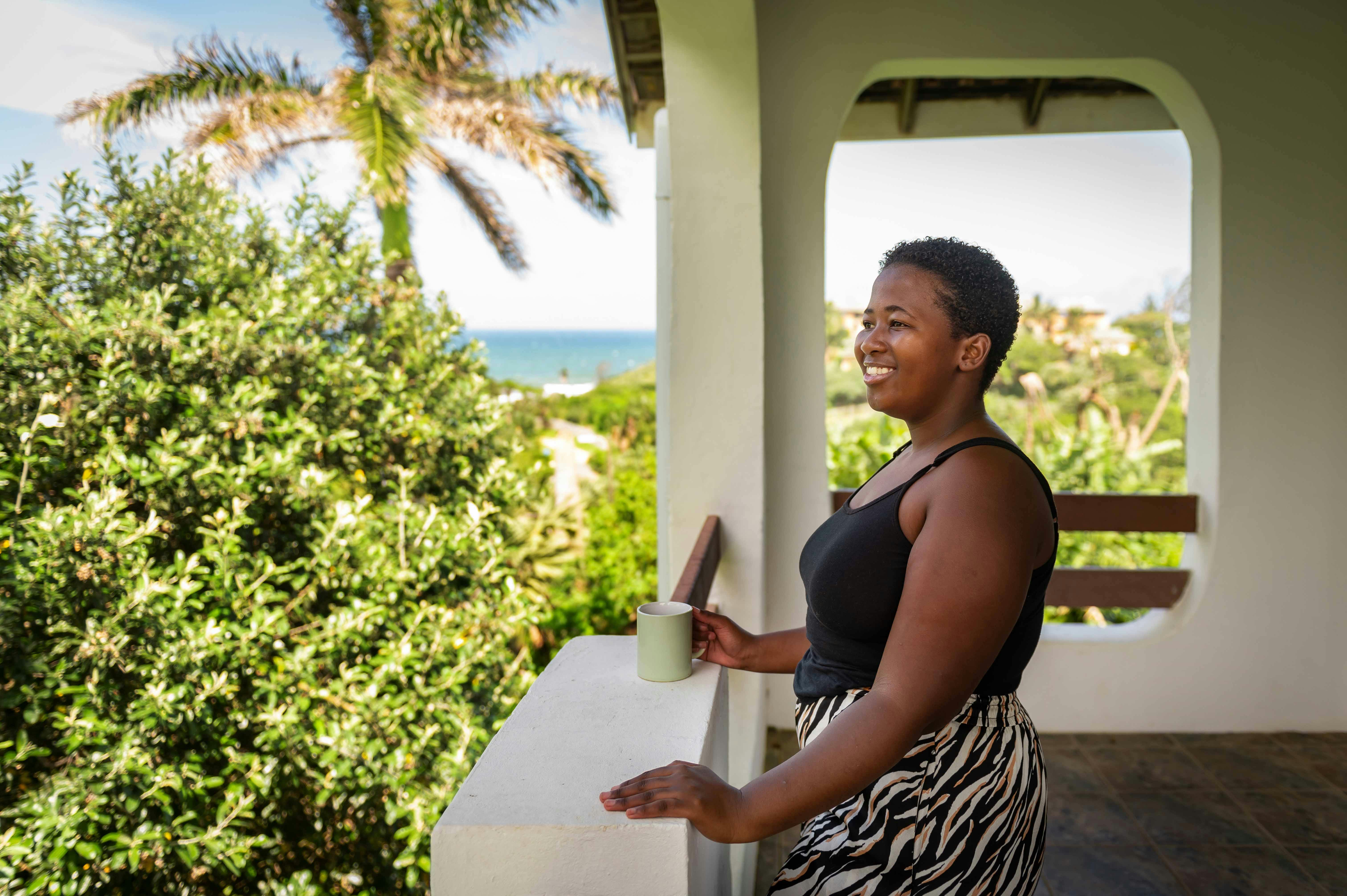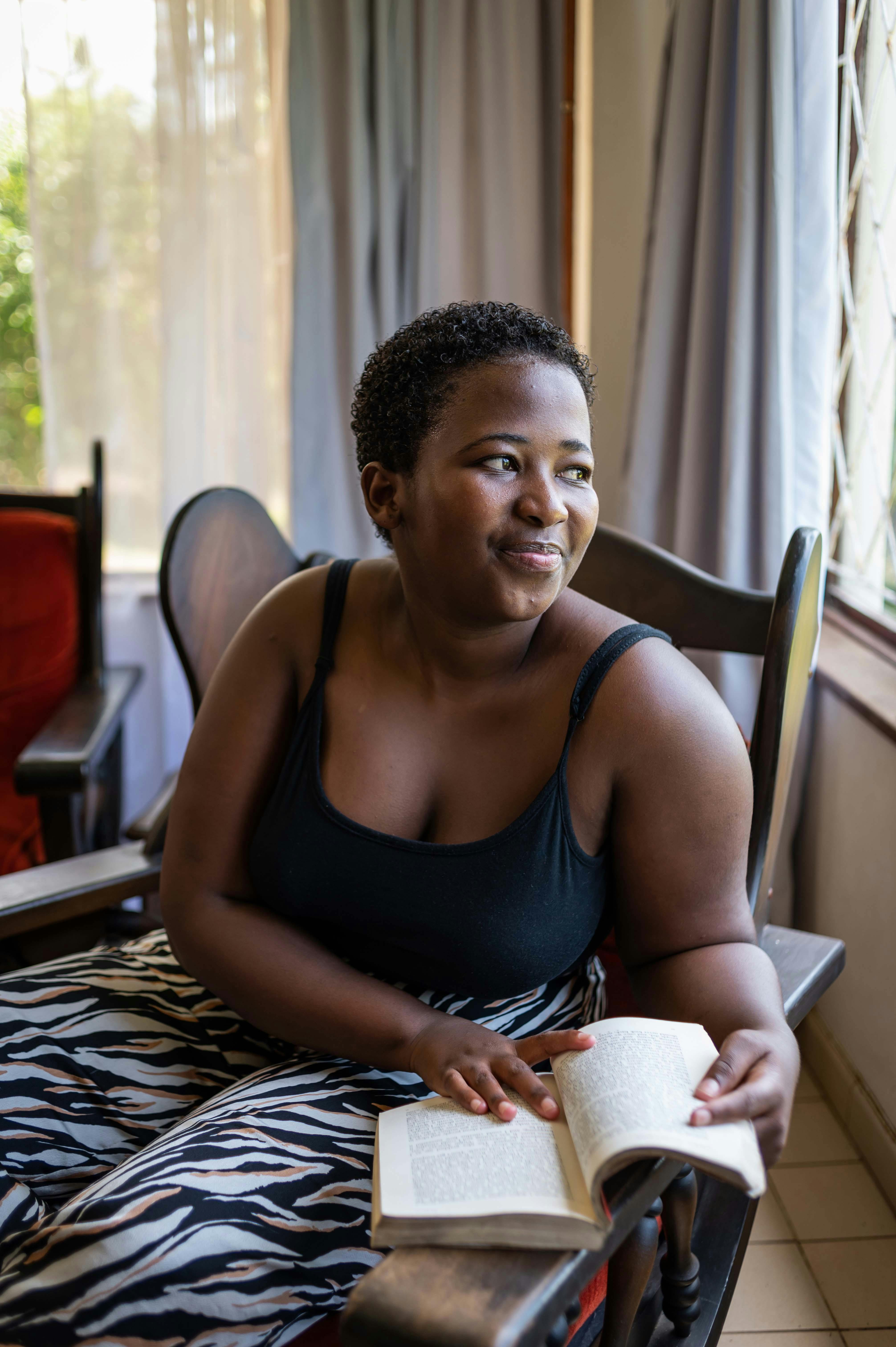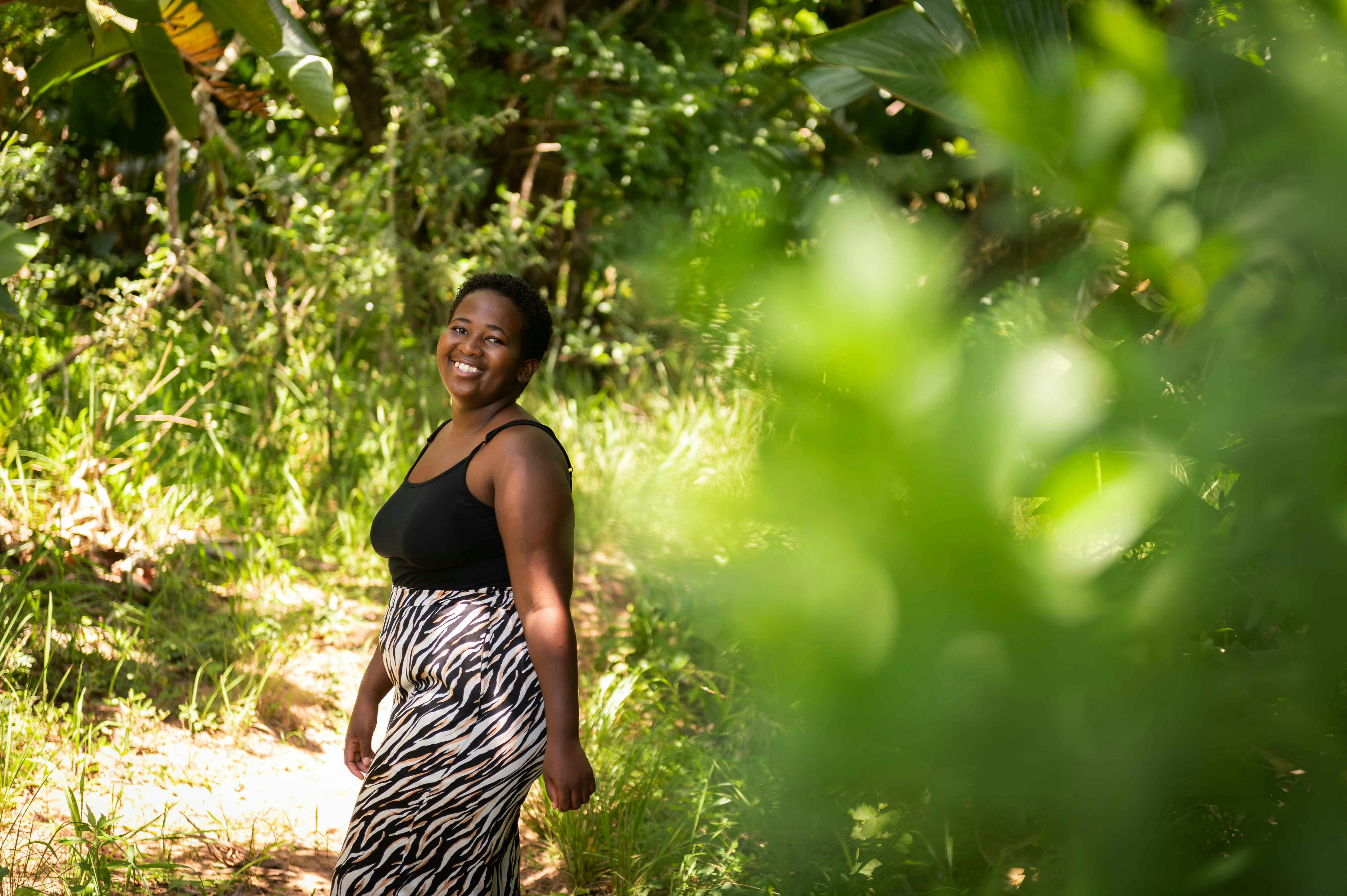EMBRACING EQUITY: EMPOWERING YOUNG WOMEN TO HAVE A MEANINGFUL VOICE IN THE DECISIONS THAT IMPACT OUR HEALTH AND ULTIMATELY, OUR LIVES
Luvo Sobuza, peer counsellor and advocate for Positive Action's partner - HER Voice Fund, explores what more can be done to equip and empower young women living with HIV with the tools to overcome challenges impacting their health in South Africa and beyond
“HIV does not define me”. I now know these words to be true. Every day, they inspire me to advocate for adolescent girls and young women living with HIV. But I haven’t always believed in these words.
My HIV journey started when I was only 16. After my diagnosis I felt as if my life was over. I fell into depression and forgot my self-worth. I thought I would no longer be able to do the things I had aspired to do – pursue an education, find a life partner, have children. I had become a victim of the judgement and stigma that still surrounds HIV. But with my family’s support, I started to embrace my status and realise that I am just like anyone else. I deserve to pursue my life aspirations and goals.
With my newfound belief and confidence, I disclosed my status on social media and connected with others and their stories. It was then I realised that other young girls may not be as fortunate as I to have had familial support. And so, I decided to start advocating and standing up for women - to create a safe space for others like me.
Adolescent girls and young women in our country remain disproportionally affected by HIV, with girls and young women (aged 15 to 24) being three times more likely to acquire HIV than their male counterparts across sub-Saharan Africa.1
For many young women in South Africa, health and societal inequity still prevents us from feeling empowered and having a voice in decisions that directly impact our lives and our health. We often shy away from seeking appropriate medical treatment and care for fear of being judged by healthcare professionals – the people that are supposed to counsel and support us.
Healthcare workers also often fail to provide young women attending HIV clinics with basic information that could help them make informed decisions about their own health. Instead, it’s up to us to ask for the information ourselves which can often feel frustrating, and many adolescent girls and young women don’t have the courage to speak up. Stigma and discrimination can also be seen at home, with many adolescent girls choosing not to disclose their status to protect themselves from social isolation or intimate partner violence.
These persistent challenges highlight the importance of this year’s International Women’s Day theme. ‘Embrace equity’ resonates strongly with me and is part of my drive to support young women in their journey of disclosure, and understanding that they are an equal part of society.
Through my role as an HIV activist, I recently worked closely with the HER Voice Fund, a Global Fund project, funded by Positive Action and Global Fund, and implemented by Y+ Global, which organises campaigns and workshops to connect adolescent girls and young women living with HIV, and empower us to take charge of our own lives. Through education, awareness and peer-to-peer counselling they reach thousands of young women, empowering them to have a say in decisions that affect their health and their lives. This work inspired me to start my own initiatives. Last year, I opened a WhatsApp group to provide young women living with HIV with a safe communal space where they can come for advice and information. The group also aims to support and motivate my peers, and to empower them to stay positive and have a shared voice.
I also recently took part in ViiV Healthcare’s HIV in View campaign, a photography gallery aiming to change global views of HIV by portraying the true face of people living with HIV. Through these campaigns we can reach more communities and challenge outdated perceptions to strive towards greater equality for people living with HIV.
We have come a long way since the start of the HIV epidemic; breaking down the stigma and misconceptions installed in our society. However, more needs to be done for adolescent girls and young women to feel like they are an integral part of our community and to have their own voice heard in implementing decisions that directly affect their health and wellbeing. Recently diagnosed young women, for instance, must be informed about their options, and healthcare workers educated to talk more openly about HIV.
By expanding access to resources and information in countries where adolescent girls and young women are being disproportionately affected by HIV, we will destigmatise HIV and increase equity.
Likewise, by communicating positively about HIV, we can encourage more women to be transparent about their status and to become an integral part of society. We must continue to connect with one another and feel empowered from each other’s stories.
Embracing this equity starts with us – women living with HIV. We must not act like victims. We must feel empowered. We must value our worth. But this must be reinforced by those working with us to accelerate the HIV response - donors, implementers and grass-roots organisations.
Together, we can change what HIV means for all womenkind.
Discover more about the work Positive Action is doing with the HER Voice Fund and other organisations to improve equity for adolescent girls and young women here. You can also explore the HIV in View gallery here, where you’ll find a vibrant and diverse group of people like me, working to change the way the world views HIV.
- UNAIDS. In Danger: UNAIDS Global AIDS Update 2022. Available at: https://www.unaids.org/sites/default/files/media_asset/2022-global-aids-update_en.pdf
NP-GBL-HVX-COCO-230004
If you get any side effects, talk to your doctor, pharmacist, or nurse. This includes any possible side effects not listed in the package leaflet. You can also report side effects directly via the GSK Reporting Tool link https://gsk.public.reportum.com/. By reporting side effects, you can help provide more information on the safety of this medicine.
If you are from outside the UK, you can report adverse events to GSK/ ViiV by selecting your region and market, here.


